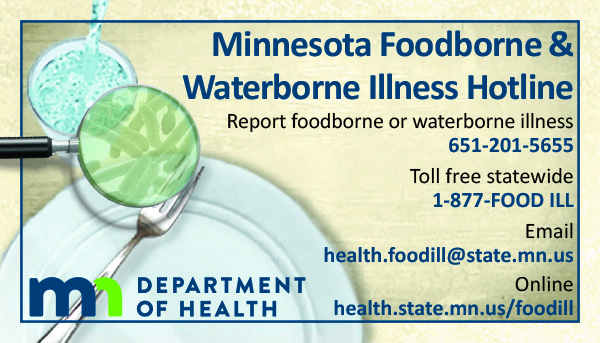- Check out the CoE All Products page. There you can find products, tools, and trainings from all the Food Safety CoEs!
- Other sources to be familiar with:
http://www.cifor.us
https://www.cdc.gov/foodsafety
KEY POINTS
- Key Points for Interviewing
- Key Points for Cluster Prioritization
- Key Points for Binomial Probability Calculations
- Key Points for Product Tracing in Epi Investigations Part 1
- Key Points for Product Tracing in Epi Investigations Part 2
- Key Points for Food Transaction Records from Credit or Debit Cards
- Key Points for Creating a Team of Student Workers
- Key Points for Investigating Sub-Clusters
- Key Points for Creating a Foodborne Complaint System

STUDENT TEAMS
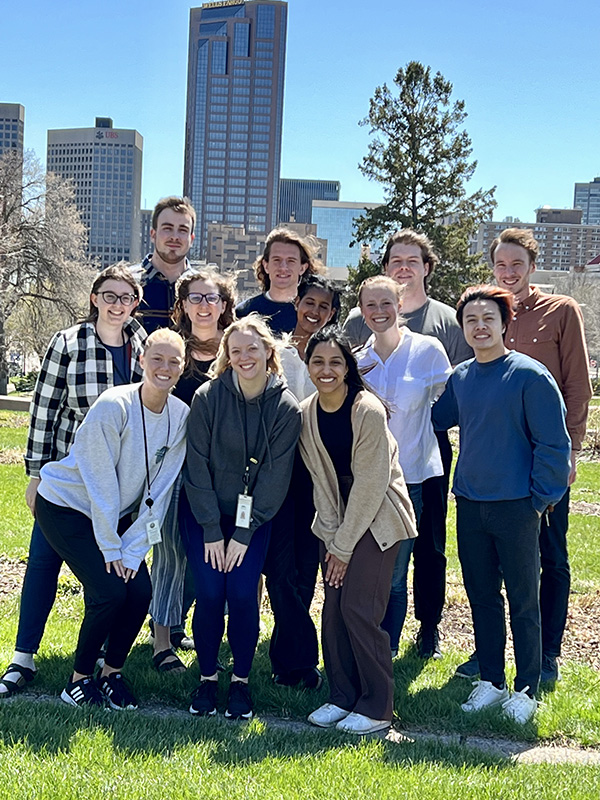
TEAM D
MDH epidemiologists oversee a team of 8 to 10 interviewers (“Team Diarrhea”) who are part-time MDH employees hired from a pool of MPH students at the University of Minnesota School of Public Health. The Team Diarrhea students are intensively trained and supervised by MDH epidemiologists. They conduct phone interviews of reportable enteric pathogen cases identified through surveillance with a detailed questionnaire about illness and exposures, including brand and variety names of foods eaten and where foods were purchased.
When a potential outbreak is identified, the data from these questionnaires is reviewed by an epidemiologist as the first step in the outbreak investigation. As the investigation progresses, the Team Diarrhea students will conduct additional interviews as needed, assist with data entry and analysis, and assist the epidemiologist with other duties.
COMPLAINT SYSTEMS
Foodborne illness outbreaks are usually detected through one of three ways: pathogen-specific surveillance of reportable diseases, reports of illnesses by healthcare providers or institutions, or consumer complaints of suspected foodborne illness. In Minnesota, foodborne illness outbreak detection and investigation is largely centralized at the Minnesota Department of Health (MDH).
- Learn more about Minnesota’s foodborne and waterborne illness complaint system at: health.mn.gov/foodill
There are multiple components of a successful integrated complaint system
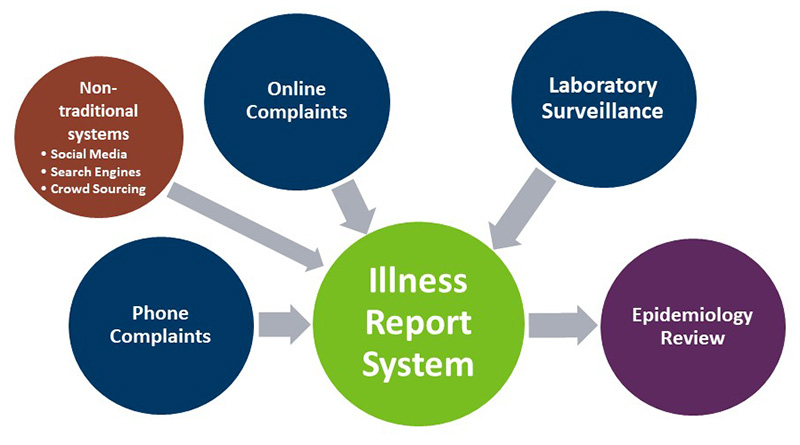
REDCAP DATA DICTIONARY
- Minnesota’s online complaint survey went live in 2017. We have a REDCap data dictionary available for anyone interested! Contact us for more information.
PUBLICATION
- An in-depth review of Minnesota’s complaint system: Li J, Smith K, Kaehler D, Everstine K, Rounds J, Hedberg C. Evaluation of a statewide foodborne illness complaint surveillance system in Minnesota, 2000 through 2006. J Food Prot. 2010;73:2059–64
ENVIRONMENTAL HEALTH
Environmental health tools for foodborne outbreak investigations.
ENVIRONMENTAL HEALTH ASSESSMENTS
Environmental health assessments should be conducted based on the suspected etiology.
EMPLOYEE SCREENING
Employee screening (i.e., management asking employees about gastrointestinal symptoms when they arrive for work) should be conducted:
- When full employee interviews may not be warranted (e.g., a restaurant that shares employees with an outbreak restaurant)
- While employee interviews are being conducted
EMPLOYEE INTERVIEW FORMS
OUTBREAKS
OUTBREAK RESPONSE PROTOCOL
This outbreak response protocol can be used as a template to create a standard protocol for outbreak response. It can enable stakeholders to work together effectively during outbreak investigations; define roles and responsibilities; and foster effective communication and data sharing among investigation team members. Also see the appendices.
“I would love if every epi who does investigations had read this paper.”
Kirk Smith, DVM, MS, PhD
Director, Minnesota Integrated Food Safety Center of Excellence
TRACEBACK WHITE PAPER
The effective use of product tracing as part of epidemiologic investigations has been demonstrated in numerous foodborne disease outbreaks. However, the approaches and systems used to conduct product tracing in this context have not been standardized, and the application of this critical tool has not kept pace with the growing number and complexity of cluster investigations. This document attempts to summarize the rationale for conducting product tracing as part of epidemiologic investigations, how product tracing fits in with the rest of an investigation, how it can be conducted most efficiently and effectively, and barriers to its use.
CLUSTER INVESTIGATION
An iterative approach to cluster investigation is often critical to solving outbreaks.
Background consumption estimates for use in binomial probability calculations during outbreak investigations.
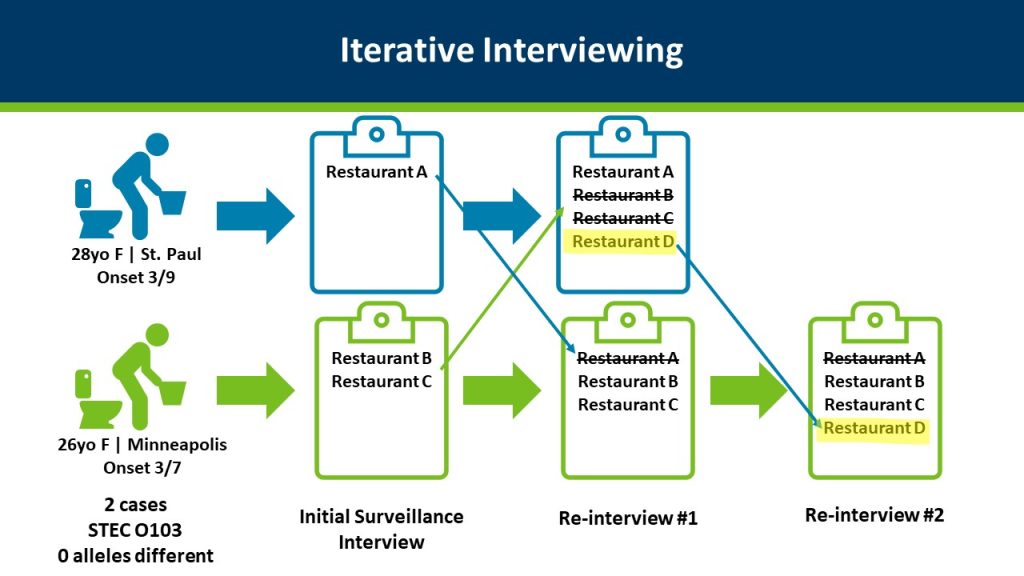
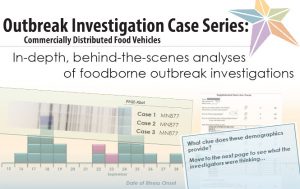
OUTBREAK INVESTIGATION CASE SERIES
OUTBREAK PREVENTION AND RESPONSE TOOLKITS
CUSTOMIZABLE TOOLKITS
We have toolkits for child care, long-term care facilities (norovirus-focused), and schools (norovirus-focused). Word versions and editable files are available to modify to fit your needs.
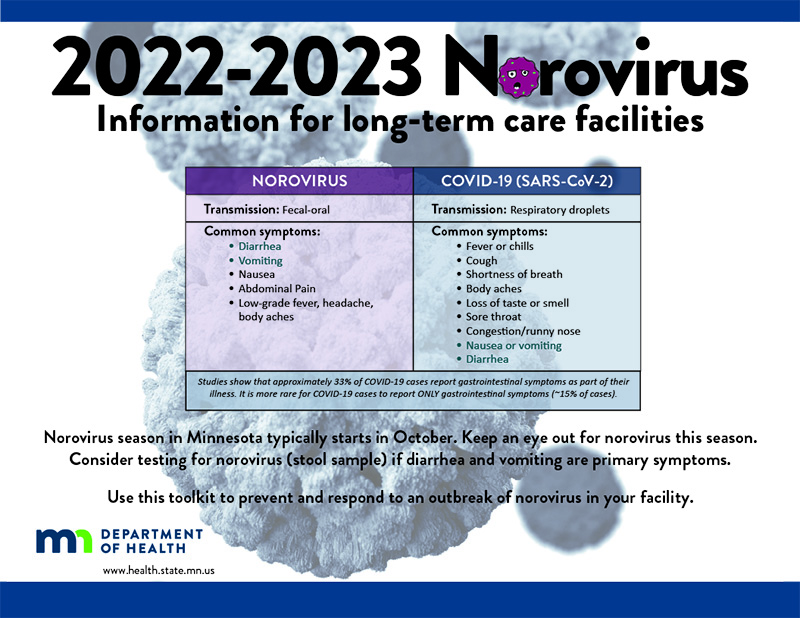
STOOL KITS
STOOL COLLECTION KITS, COMPONENTS AND COSTS
These are products used by the Minnesota Department of Health for use in stool collection kits. Other similar products may be available from other sellers. Costs are approximate as of October 2019. In some cases, per unit price is less if larger quantities are purchased. Price estimates do not include shipping, taxes, or other ordering costs.
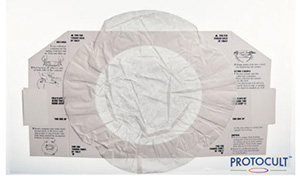
Protocult 120 Collection Device
$168.86/case | $1.69 each
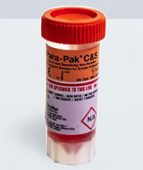
Para-Pak C&SP Specimen Vial
Meridian BioScience
$309.78/case | $2.58 each
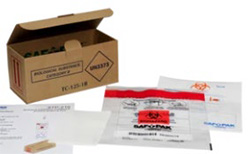
SAF-T-PAK STP-210
Includes mailing box, plastic biohazard bag, paper biohazard bag, absorbent paper
$71.11/case | $7.11 each
Pre-paid USPS Mailing Label
Based on weight of box shipped back; approximately 6 -7 oz.
$3.12 – $3.31 each
Documents
Laboratory submission form
Instruction sheet
Video: How to Submit a Stool Sample for Testing
Lorem ipsum dolor sit amet, consectetur adipiscing elit. Ut elit tellus, luctus nec ullamcorper mattis, pulvinar dapibus leo.


